
Journal of Ethnobiology and Ethnomedicine
Scope & Guideline
Bridging Science and Tradition for a Sustainable Future
Introduction
Aims and Scopes
- Ethnobotany and Ethnopharmacology:
Research on the use of plants in traditional medicine, including studies on medicinal plants, their efficacy, and cultural significance in various communities. - Ethnozoology and Animal-Based Practices:
Exploration of the relationships between humans and animals, including the use of animals in traditional medicine, cultural beliefs surrounding fauna, and practices like entomophagy. - Cultural Practices and Knowledge Systems:
Investigation of traditional knowledge systems, including the role of cultural practices in food security, agriculture, and conservation. - Conservation and Sustainability:
Focus on the conservation of biological resources, including the documentation and protection of traditional ecological knowledge and practices that support sustainability. - Interdisciplinary Approaches:
Integration of various scientific disciplines to understand the complex relationships between culture, environment, and health, promoting holistic and inclusive research methodologies.
Trending and Emerging
- Impact of Climate Change on Traditional Knowledge:
Recent studies are increasingly examining how climate change affects traditional ecological knowledge and practices, highlighting the adaptive strategies of indigenous communities. - Food Security and Nutrition:
There is a growing emphasis on the role of ethnobiology in addressing food security, with research focusing on wild food plants and their potential to enhance nutritional outcomes in various communities. - Interdisciplinary Research Frameworks:
Emerging themes reflect a trend towards interdisciplinary research that combines ethnobiology with fields like public health, environmental science, and policy-making to address complex societal issues. - Gender Perspectives in Ethnobiology:
Research exploring the gender dimensions of traditional knowledge and practices is gaining importance, emphasizing women's roles in the preservation and transmission of ethnobiological knowledge. - Community-Based Conservation Initiatives:
Studies that involve local communities in conservation efforts and highlight the importance of indigenous knowledge in sustainable practices are increasingly prevalent.
Declining or Waning
- Historical Ethnobotany:
Research focusing on historical uses of plants and traditional practices appears to be less frequent, possibly due to a shift towards contemporary applications and urgent conservation issues. - Conventional Ethnobotanical Surveys:
Traditional survey methodologies that rely solely on plant documentation without integrating local ecological knowledge or community engagement are becoming less favored in favor of more participatory approaches. - Regional Studies with Limited Scope:
Studies that focus narrowly on specific regions without addressing broader ecological or cultural contexts may be declining as researchers seek to connect findings to global issues.
Similar Journals
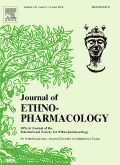
JOURNAL OF ETHNOPHARMACOLOGY
Transforming Traditional Practices into Modern SolutionsThe Journal of Ethnopharmacology, published by Elsevier Ireland Ltd, is a pivotal resource in the fields of Drug Discovery and Pharmacology, recognized as a Q1 journal in both categories as of 2023. With a rich history since its inception in 1979, this peer-reviewed journal provides a platform for rigorous research and innovative findings related to traditional medicinal practices and the therapeutic potential of natural products. The journal is ISSN 0378-8741 and E-ISSN 1872-7573, and it plays a vital role in advancing knowledge through its high-quality publications, which rank impressively at #35 out of 313 in Pharmacology and #19 out of 157 in Drug Discovery according to Scopus metrics. Although not open access, the journal aims to cater to a diverse audience of researchers, professionals, and students dedicated to exploring the intersection of ethnopharmacology and modern scientific inquiry. Its comprehensive scope encapsulates a multitude of studies spanning the globe, fostering a deeper understanding of how traditional practices can inform contemporary health solutions.
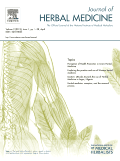
Journal of Herbal Medicine
Cultivating Understanding of Herbal Medicine's Role in Modern HealthThe Journal of Herbal Medicine, published by Elsevier GmbH in Germany, stands at the forefront of research in the dynamic and evolving field of complementary and alternative medicine. With an ISSN of 2210-8033 and an E-ISSN of 2210-8041, this journal has been contributing significant insights since its inception in 2011 and continues to be a vital resource through 2024. Recognized for its scholarly rigor, it holds a commendable Q2 ranking in the 2023 Scopus category for Complementary and Alternative Medicine, placing it in the upper echelons of its field with a rank of 32 out of 105 journals, marking it in the 70th percentile. The Journal of Herbal Medicine emphasizes the integration of traditional herbal therapies and modern scientific approaches, offering researchers, professionals, and students a platform for disseminating their findings and fostering an inclusive dialogue on natural medicine's role in healthcare. Although it is not an open-access publication, its commitment to high-quality research makes it an essential read for those wanting to explore the efficacy and application of herbal medicine in contemporary practice.

International Journal of Gastronomy and Food Science
Unveiling the Cultural Significance of Food Through ResearchThe International Journal of Gastronomy and Food Science, published by ELSEVIER, serves as a premier platform for scholars and practitioners in the domains of gastronomy and food science. With an ISSN of 1878-450X and E-ISSN 1878-4518, this journal has been recognized for its impact, holding a prestigious Q1 ranking in Cultural Studies and a Q2 ranking in Food Science as of 2023, thereby reflecting its influence and relevance in the field. It is particularly noted for its robust Scopus rankings, placing 28th out of 1304 in Social Sciences - Cultural Studies, advocating for high-quality research with a 97th percentile ranking, and 117th in Agricultural and Biological Sciences – Food Science with a 70th percentile ranking. This open-access journal offers a comprehensive exploration of food-related issues, aiming to bridge the gap between culinary arts and scientific research, enhancing the understanding of food systems and cultural significance. For researchers, professionals, and students alike, the International Journal of Gastronomy and Food Science is an invaluable resource, dedicated to fostering innovation and comprehensive discourse in culinary studies.
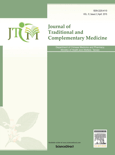
Journal of Traditional and Complementary Medicine
Illuminating the Path to Integrative HealingJournal of Traditional and Complementary Medicine is a distinguished journal in the field of Complementary and Alternative Medicine, published by Elsevier. With an impressive impact factor, the journal is ranked Q1 in its category and boasts a Scopus ranking of #5 out of 105, placing it in the top 5% of relevant journals globally. Since its inception in 2011, the journal has transitioned to an Open Access model in 2015, ensuring that research is accessible to a wider audience. The journal serves as a critical platform for researchers, healthcare professionals, and students to explore and disseminate information about traditional and complementary treatment modalities, bridging the gap between ancient practices and modern medicine. With its commitment to rigorous peer review and an expansive scope encompassing a range of topics related to traditional medicine, the Journal of Traditional and Complementary Medicine continues to play a pivotal role in advancing understanding and application of alternative therapies in healthcare.
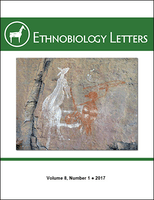
Ethnobiology Letters
Fostering Interdisciplinary Insights into Human-Biodiversity ConnectionsEthnobiology Letters is a pioneering journal in the field of ethnobiology, dedicated to the scientific study and documentation of the intricate relationships between human cultures and biological diversity. Published by the Société d'Éthnobiologie, this open-access journal has been providing an invaluable platform for researchers and scholars since its inception in 2010. Operating under the ISSN 2159-8126, it aims to promote accessibility and dissemination of knowledge across global communities by making its content freely available. Its contributions have garnered recognition in the realms of anthropology and agricultural sciences, achieving notable ranks in Scopus with a percentile standing in the 56th for Social Sciences and 41st for Agricultural and Biological Sciences. By fostering interdisciplinary dialogue and sharing innovative research, Ethnobiology Letters serves as a crucial resource for academics, practitioners, and students engaged in the exploration of the cultural dimensions of biodiversity.

Zeitschrift fur Arznei- & Gewurzpflanzen
Advancing Knowledge in Herbal Medicine and Crop ScienceZeitschrift für Arznei- & Gewürzpflanzen, published by AGRIMEDIA GMBH in Germany, serves as a vital platform for the dissemination of research in the fields of agronomy, food science, and plant science. With an ISSN of 1431-9292, this journal focuses on the study and application of medicinal and aromatic plants, making significant contributions to both academia and industry. Although it is classified in Q4 quartiles across its relevant fields for 2023 and has a Scopus ranking that places it in the lower percentiles, the journal offers a crucial resource for understanding the ongoing developments and research challenges in herbal medicine and crop enhancement. It aims to provide a comprehensive view on various aspects of herbal studies, including cultivation, pharmacological properties, and their implications for food science, thus appealing to researchers, professionals, and students involved in plant research, agriculture, and nutrition. For access information, please refer to the journal's official web portal for details on subscription and submission guidelines.

Plants People Planet
Innovating Interactions between Plants and People.Plants People Planet is a leading academic journal published by Wiley, focusing on the intricate relationships between plants, people, and the planet. Since its debut as an Open Access publication in 2019, it has quickly established a significant presence in the scholarly community, achieving impressive rankings in multiple categories. Notably, it holds a prestigious Q1 ranking in Ecology, Evolution, Behavior and Systematics, Forestry, Horticulture, and Plant Science as of 2023. With its dedicated scope addressing crucial ecological and horticultural advancements, this journal is essential for researchers, professionals, and students who aim to explore interdisciplinary approaches to sustainable plant management and environmental stewardship. Operating from the United Kingdom, it serves a global audience of scholars, providing an invaluable platform for disseminating innovative research and fostering collaborative dialogue in these pivotal fields. For those interested in cutting-edge research that bridges the gap between human practices and ecological health, Plants People Planet is a must-publish venue.

Novos Cadernos NAEA
Unlocking insights at the intersection of society and environment.Novos Cadernos NAEA is a prominent open-access journal published by Universidade Federal do Pará, dedicated to advancing the field of applied social sciences and environmental studies. Since its inception in 1998, this journal has established itself as a vital platform for researchers and practitioners to disseminate innovative research, engage in scholarly conversations, and promote interdisciplinary approaches to contemporary issues affecting society and the environment. With an ISSN of 1516-6481 and an E-ISSN of 2179-7536, it aims to enhance accessibility to knowledge by ensuring that all articles are freely available online, thereby supporting the global academic community. The journal's commitment to quality research is evident, making it an essential resource for scholars, students, and policymakers looking for cutting-edge analysis and insights in their fields.
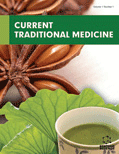
Current Traditional Medicine
Elevating the Standards of Traditional Medicine ScholarshipCurrent Traditional Medicine, published by Bentham Science Publishers, is an esteemed open-access journal that has been at the forefront of disseminating research in the field of Complementary and Alternative Medicine since its inception in 2015. With ISSN 2215-0838 and E-ISSN 2215-0846, this journal aims to foster scholarly dialogue and innovation by providing a platform for the publication of high-quality studies, reviews, and clinical insights concerning traditional medicine practices and their integration with modern healthcare. Acknowledging the growing relevance of these subjects, Current Traditional Medicine holds a Q3 quartile ranking in Complementary and Alternative Medicine and is positioned within the 30th percentile among its peers. The journal serves as a pivotal resource for researchers, professionals, and students alike, encouraging exploration and advancement in the fields of pharmacology, drug discovery, and herbal medicine. Readily accessible, it ensures that cutting-edge research reaches a global audience, thereby significantly contributing to the evolving landscape of health sciences.

Records of Natural Products
Harnessing Nature's Bounty for Scientific ProgressRecords of Natural Products is a distinguished journal focused on the dynamic fields of Drug Discovery, Organic Chemistry, Pharmacology, and Plant Science. Published by ACG PUBLICATIONS in Turkey, this journal serves as a vital platform for disseminating innovative research findings and advancements in natural product studies. With its convergence spanning from 2009 to 2024, Records of Natural Products holds a commendable position in the academic realm, featuring a 2023 Q3 ranking in Drug Discovery and Organic Chemistry, alongside a notable Q2 ranking in Plant Science. Despite its current lack of open access, the journal is committed to providing quality content that enriches the understanding of natural products and their potential applications. Researchers and professionals alike can benefit from the journal's insights, which not only contribute to scientific knowledge but also facilitate advancements in pharmaceuticals and sustainable practices. By exploring the rich tapestry of natural product research, this journal underscores its importance as a leading resource for professionals dedicated to enhancing the efficacy and application of natural compounds.